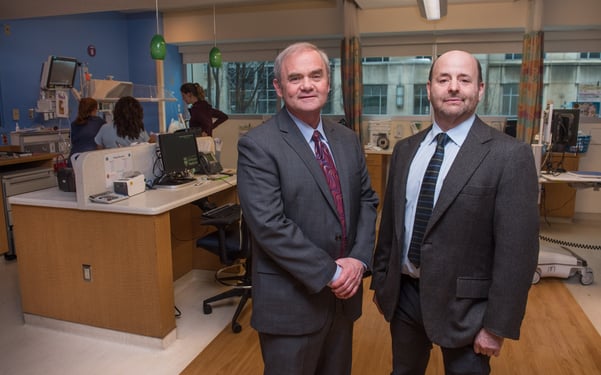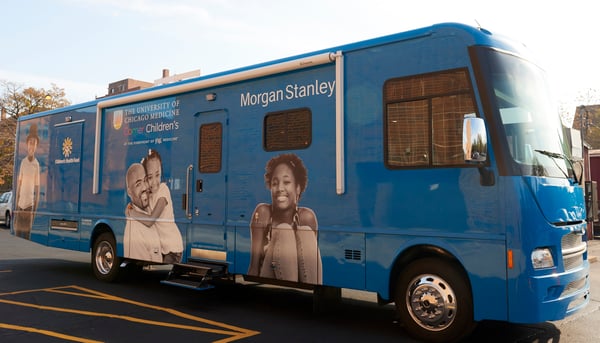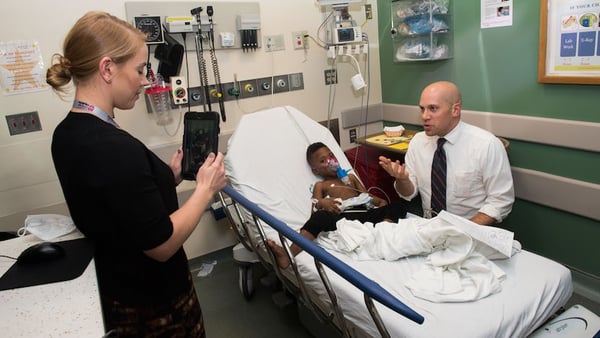A promise to prevent illness and injury in children

Pediatric nephrologist Shireen Hashmat, MD, with a patient
Imagine a world where the freedom of childhood is rarely — or never — disrupted by health challenges. At the University of Chicago Medicine Comer Children's Hospital, we make a promise every day to prevent illness and injury in children. This past year, our achievements in research and in the clinic are evidence of our commitment to fulfilling this promise for children affected by asthma, kidney disease, prematurity, HIV, and medical emergencies — starting with our patients and our community.
Asthma

"We may be able to protect children from asthma by re-creating the Amish experience."
Chair, Department of Human Genetics
In recent research published in the New England Journal of Medicine, Ober and colleagues found that the microbe-rich dust from Amish homes may help build the immune system in young Amish children to prevent allergic asthma. This knowledge can help us develop novel strategies to both treat and prevent chronic, non-infectious inflammatory diseases such as asthma. Learn more.
Kidney Disease
"We can help prevent chronic kidney disease in preemies."
Pediatric Nephrologist
Assistant Professor of Pediatrics
Neonates with acute kidney injury often go undiagnosed and fail to receive the care needed to prevent chronic kidney disease later in life. A Comer Children’s team is working to make sure these preemies are evaluated after discharge from the hospital and followed over the long term. Find out more.
Prematurity

"Noninvasive ventilation is not always best in premature newborns."
Chief of Neonatology
Associate Professor of Pediatrics and Neurology
In a recent editorial in the New England Journal of Medicine, Drs. Schreiber and Marks caution neonatologists to reconsider the prolonged use of noninvasive support and oxygen therapy in premature babies. A recent study shows that these techniques can actually lead to worse lung function over the long term. Discover more.
HIV

"We want to provide all vulnerable Chicago youth on the South Side with access to HIV/STI screening, prevention, and treatment."
Medical Director, Care2Prevent
Twenty-eight percent of new HIV infections in Chicago occur in youth ages 13 to 24, and many of the neighborhoods most affected are on the South Side. That’s why our Care2Prevent HIV/STI prevention and treatment program goes directly into the community to test, treat and identify young adults vulnerable to acquiring HIV. Learn more.
Medical Emergencies

"Video-recorded discharge improves communications."
Assistant Professor of Pediatrics
A lack of communication between emergency room physicians and primary care physicians after patients are discharged from the Emergency Department can result in medical errors, lack of follow-up care and missed test results. To improve communication, Dr. Heilbrunn has helped develop an innovative, internet-based medium to record patient discharge instructions and clinical status on an iPad, and then transmit the video to the primary care physician. Find out how this works.
